By May Ng
Barack Obama's visit to Myanmar just two weeks after the historic presidential re-election is the most powerful statement ever made over this country in recent memory. It is only fitting that President Obama begins his journey at the Rangoon University where generations of leaders of different races from all across the continent and Myanmar, including Aung San Suu Kyi's father, were educated long ago.
But, after the military took over power in 1962, the army swiftly commandeered the wealth of all private entrepreneurs, especially from non-Myanmar people whom the military generals called foreigners. Subsequently, the military went further and blocked all those targeted foreigners who were Indians, Chinese, other Asians, and Europeans from securing jobs, attending universities, traveling, or owning their own homes. Students who were considered to be foreigners were thrown out of Rangoon University or were asked to pay exorbitant fees only to be allowed to take courses in non-professional subjects. Today, like the Rohingyas in Arakan, they are continued to be denied legal identity. The foreign identity cards given to them make them foreigners in their own homeland. And their statelessness prevents them from escaping to other countries as well.
The government enacted racial discrimination in Myanmar, is worse than the Apartheid of South Africa or the American slavery of the south because no one dares talk about the racial hatred it engenders even now.
After the 1988 uprising and the 2007 Saffron Revolution, mainland political oppositions and the armed ethnic rebels who could no longer safely use their citizenship identity became new victims of statelessness. Since then not only the so called foreigners, but also political activists, ethnic hill tribes and countless civilians running from government's assault became stateless people without legal identity.
Myanmar cannot move forward, until it faces this demon with candor and courage. Myanmar must abolish all discriminatory and inhumane laws from the book. All people in Myanmar should be allowed human rights as defined by the United Nations. They and the natives returning from abroad should be given residential rights and legal identity. They should be allowed to work and educate themselves. They should be given opportunity to emigrate from Myanmar legally if other countries want to accept them.
-ဆက္ဖတ္ရန္ေခါင္းစဥ္ ကုိ ႏွိပ္ပါ။-
As President Obama has demonstrated in his election victory, a culture of inclusion is a winning ticket for the future. Myanmar must be encouraged to choose a constructive path instead of hatred and violence. Buddhism is not an enemy of Islam and the authority in Arakan and Myanmar should not be allowed to change Myanmar into a war zone against the Rohingyas.
U Gambira aka Nyi Nyi Lwin a famous leader of the Saffron Revolution said that the spiritual realm of Simasambheda endeavors to transcend the boundary of self and non-self. The spirit of loving kindness at the heart of Burmese Buddhism transcends race, religion, and physical identity, and liberates mankind from rage, hatred, and fury.
U Gambira said that Myanmar must abandon the era of dark ages and embrace a peaceful future according to Gandhi's (Ahimsa Satyagaraha) a non-violence path illuminated by true conviction.
Interestingly, the Arakan conflict is only a smokescreen to cover up the real crimes inside Myanmar by the remnant of the old regime; the wholesale robbery of Myanmar's natural resources, and the uprooting of native farmers to confiscate their farmlands in a scale never seen in history; and most important, the fundamental flaw in the constitution that permanently installs the military as the power behind the scene.
Obama's presidential victory speaks volume for a campaign that embraces the future of inclusiveness and leaves behind outdated bias and bigotry. Obama is the right man to convince the military in Myanmar that to avoid the scenario in Libya and Syria, the Burmese army must embrace the future of racial tolerance and respect for the will of the people.
The government security networks that relax the grip in Arakan to unleash the fury of racial hatred also tighten the fist to punish a brave young Saffron leader U Gambira aka Nyi Nyi Lwin. Just like the Depayin attempt to eliminate Aung San Suu Kyi in 2003; after the 2007 Saffron revolution, the government imprisoned, tortured, and left U Gambira for death in a remote prison of Myanmar. And after his release last January, the authority confiscated U Gambira's national identity card to make his life unbearable. The conflict-ridden Arakan, and wounded U Gambira are the results of the Burmese military campaign to diminish and eradicate the memory of Saffron Revolution, a final challenge to the military rule in Myanmar.
U Gambira, who continues to suffer enormous pain from his injuries, and another political leader Ko Moe Thee Zun, continue to speak up against the destructive campaigns in Arakan and Kachin State. If they are risking their lives and reputation for Myanmar, Aung San Suu Kyi, President Thein Sein, and President Obama can surely take a chance and speak up against hatred and bigotry in Myanmar. When Lyndon Johnson was warned against speaking up for civil rights for it might break his presidency, he said, 'Well, what the hell's the presidency for'' What is the good of having power, if it is not used to speak up for the people who have no voice inside Myanmar now'
Finally, if President Obama listens carefully before leaving Rangoon, he may be able to hear a faint rumble of the Saffron Monks prayer in Myanmar. 'May there be no deception of one another.' 'May there be no discrimination of one another.' 'May there be no impoverishing, tormenting of one another.' As of today, the excommunication or Patam Nikkujjana Kamma against the military authority has not been lifted yet by the Saffron monks.
Speaking Freely is an Asia Times Online feature that allows guest writers to have their say. Please click here if you are interested in contributing. Articles submitted for this section allow our readers to express their opinions and do not necessarily meet the same editorial standards of Asia Times Online's regular contributors.
May Ng is a commentator for mizzima.com, a Burmese online news journal





















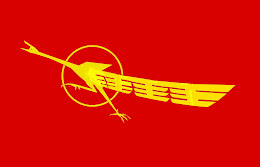





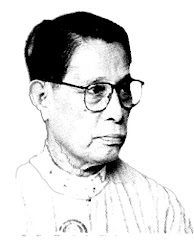



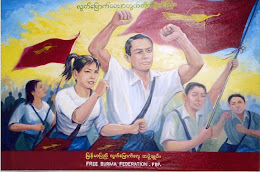





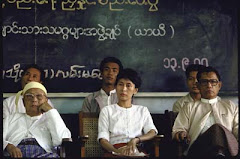

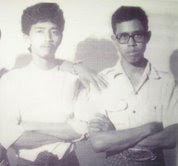

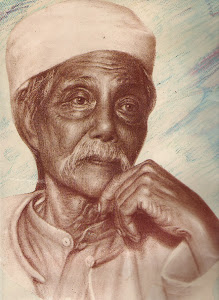
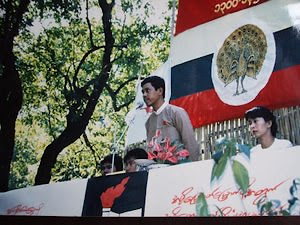
No comments :
Post a Comment